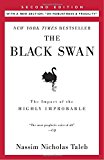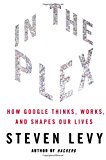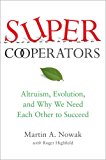You can find the Google+ thread I found this image of Tyler Durden on here.
My 10 Links posts are in a way a homage to the original Google search results, which were always 10 links. That isn’t really the case anymore but the remnants are still there.
With all the *Buzz* about Google+ it seemed like a forgone conclusion that I would do a 10 Links post.
I don’t have a lot of personal opinion to add at this time but I do think that Google+ will succeed where FriendFeed, Buzz and Wave all failed. The big question is will it become a major player?
Yes and no. Yes, Google+ isn’t going anywhere. It’s here to stay but it won’t gain mainstream acceptance in it’s current form.
But trying to predict future acceptance on it’s current state would be a mistake.
Without further ado, here’s the 10+ Links (seemed only right to throw in a few extra):
1 - TNW: Google+ and its two-pronged relevance problem Google
Consisting of Facebook-style sharing and discussion; group video chat; mobile group messaging and automated content discovery, Google+ has been met with the general approval of early adopters lucky enough to get in. Demand for access is high, with invites even being sold on eBay.
However Google+ has one huge challenge ahead – relevance – both in terms of finding a place in people’s everyday lives and making sure it serves users with exactly what they want.
2 - Paul Adams (Former Googler now at Facebook): This is just the beginning
Since Google+ launched last week, many people have been asking me my opinion about it. Unfortunately I can’t talk about specifics (hello, non-disclosure agreements) but I can talk broadly about the state of the world.
When it comes to representing relationships online, there are two big questions:
1. Our offline relationships are very complex. Should we try and replicate the attributes and structure of those relationships online, or will online communication need to be different?
2. If we do try and replicate the attributes of our relationships, will people take the time and effort to build and curate relationships online, or will they fall back to offline interactions to deal with the nuances?
2.5 - TechCrunch: Paul Adams: Seeing Google+ In Public Is Like Bumping Into An Ex-Girlfriend.
Ex-Google UX guy Paul Adams is perhaps most known for his slideshow “The Real Life Social Network,” which highlighted the perils of having one default group for sharing and emphasized that the ideal social networking service would be designed for multiple groups. The slideshow illustrated the flaws in Facebook’s lump sum friend model and called for a social network where users could set sharing levels to correspond to the 4-6 separate relationship groups that people tend to have.
Sound familiar? Well, if this reminds you a little of Google+ Social Circles, its because Adams was a User Experience Researcher on Google social/Google+ until he left Google in December 2010. The first version of his famous “The Real Life Social Network” deck was published in April 2010, at least two months before the project started (with an even earlier versionpublished two years ago).
3 - A VC: Why I’m Rooting For Google+
The day Google+ launched, I sent a friend at Google who was involved in building the service an email requesting an invite. I got the invite late that day and started playing with the service. Here’s my profile. I’m not sure if this page is public or you need a Google+ login to see it. At some point Google will open the service to everyone and I expect this page will be public, but I’m not sure.
In any case, I hope Google+ succeeds. Given the blog posts saying this will kill Tumblr, Twitter, Foursquare, etc, you might wonder why I feel that way. Well first, I don’t think competitors kill companies and services. I think the vast majority of “deaths” are self inflicted. Facebook didn’t kill MySpace and Friendster, they killed themsleves by failing to address the shortcomings of their services and their inability to respond to changing market dynamics, in some cases brought on by competitors. Of course, that fate could be in store for any company, including our portfolio companies, but it won’t be because of Google+.
4 - Mashable: What MySpace’s Tom Anderson Thinks of Google+
My original vision for MS was that everything got better when it was social–so I tried to build all the super popular things used on the web (blogs, music, classifieds, events, photos) on top of MySpace’s social layer. When Yahoo launched 360, MSN launched Spaces, and Google launched Okrut, I was shakin in my boots. But quickly I saw that it’s really hard to layer in social to features after the fact. At MySpace we had the luxury of having social first, and building the products on top of that layer. Then I choked and Facebook realized that vision. ![]()
But Google+ really seems to be primed to make good on that original premise–that everything gets better when its social. And unlike FB, Twitter, or anyone else, Google already has the most advanced set of products. And if I can clearly see where this is headed, then I think what we are getting is a much better Google. Does that kill FB/Twitter? Who cares? I’d use all 3, but more importantly, I’ll be using Google products I never used, or use them in new, better ways I never used them before.
5 - WiredPen: +1 Takes on New Meaning With Launch Of Google Plus
With Google+, things work. The interface is clean, light, inviting. Engineers have anticipated how we might use existing shorthand (from Twitter and Facebook), such as replying in a comment thread by putting @ in front of someone’s name. They turn that @ into a + automagically and the name becomes a link to the person’s Google profile page.
6 - ZDNet: Facebook engineers bring Google+ Circles to Facebook
They say imitation is the sincerest form of flattery. While Google+ has been criticized for being a clone of Facebook, it implements a few features better than its counterpart. A team of Facebook engineers have ported one such Google+ feature, called Circles, to Facebook.
Facebook engineers Vladimir Kolesnikov, Peng Fan, Zahan Malkani, and Brian Rosenthal wanted to be able to organize their Facebook friends in the same way you can organize them using Google+. Since it took a bit of hacking, the team of four has called it Circle Hack and described it as “A one-night experiment with JavaScript (not affiliated with Facebook).” I first heard about Circle Hack via a message from Facebook Platform Partner Engineer Simon Cross on Twitter:
Interesting that people think Google+Circles is new - seen Facebook Friend lists? This makes a good point: http://t.co/flxYts4
7 - Conversation Agent: How Google+ Addressed Useful Network Features
While my first look at Google+was focused on the organization use case, I’ve had the opportunity to think about other features that would make it more useful for me.
Many others have reviewed and compared the new network with others like Facebook, Twitter, and Tumblr by now.
It’s early days, and many Googlers participating in the network actively, as well as their teams, are collecting feedback from users as quickly as it comes. They also designed an intuitive way of signaling what the comment/request is about by letting you highlight that part of the page.
8 - Read/Write Web: Google Plus: Is This the Social Tool Schools Have Been Waiting For?
There seem to be three forces at play when it comes to education and social media. The first is a lack of force, quite frankly - the inertia that makes many educators unwilling and uninterested in integrating the technology into their classrooms. The second is the force of fear - the pressures on the part of administrators, district officials, and politicians to curtail and ban teacher and students’ interactions online. (See Rhode Island’s recently passed legislation that outlaws all social media on school grounds as a case in point.) And finally, the third force is that of more and more educators who are embracing social media and advocating its use on- and off-campus - for student learning and for teacher professional development alike.
9 - TechCrunch: Google’s Six-Front War
While the tech world is buzzing about the launch and implicationsof Google’s new social network,Google+, it’s worth noting that Google isn’t just in a war withFacebook, it’s at war with multiple companies across multiple industries. In fact, Google is fighting a multi-front war with a host of tech giants for control over some of the most valuable pieces of real estate in technology. Whether it’s social, mobile, browsing, local, enterprise, or even search, Google is being attacked from all angles. And make no mistake about it, they are fighting back and fighting back, hard. Entrepreneur-turned-venture capitalist Ben Horowitz laid the groundwork for this in his post Peacetime CEO / Wartime CEO, saying Larry Page “seems to have determined that Google is moving into war and he clearly intends to be a wartime CEO. This will be a profound change for Google and the entire high-tech industry.” Horowitz is exactly right.
10 - TechCrunch: When Google Circles Collide
I actively think about how to create content and the right audiences for it. When I’m hiking, I take pictures of trailheads, forks and other things that are visually uninteresting. I also carry aGPS with me so I can precisely geotag each picture. I do it because it’s valuable to an EveryTrail user in determining how to hike the trail. When I upload the pictures from the hike to Facebook, those waypoint pictures aren’t included. Yes, I’m a dork.
Given the level of control that Google+ is offering, I should be thrilled with this great new tool. But I’m not.
It solves the wrong problem, particularly with Google Circles, the Google+ feature that lets you share different things with different groups of people. And it doesn’t do anything to solve the biggest problem with social networks today: increasing the signal to noise ratio.
11 - TechCrunch: Zuckerberg Surprised That People Are Surprised He’s On Google+
Facebook CEO Mark Zuckerberg joining Google+ was a major media event, with everyone from Forbes to The Daily Mail covering the fact that the founder established a Google+ profile, building Circles that include former Facebooker Dustin Moskovitz and current Facebook CTO Bret Taylor.
While many were doubtful that the real Zuckerberg would join a competing social service, tech blogger Robert Scoble texted Zuckerberg himself to confirm, tweeting out “Name drop moment. Zuckerberg just texted me back. Says “Why are people so surprised that I’d have a Google account?”
In case anyone is still doubting that it is the real Zuck on there, Scoble tells me that Zuckerberg indeed meant Google+ account when he referred to Google account. But the real question is, why are people so surprised that Zuckerberg would chose to be on Google+?
Similar Posts:
- The Rebirth of Tom Anderson, Founder of MySpace on Google+
- Google Reader Notes helps FriendFeed hurts del.icio.us and Twitter
- Twitter Craze Feels Like MySpace Back in the Day
# of Comments 4
# of Comments 5
# of Comments 7








